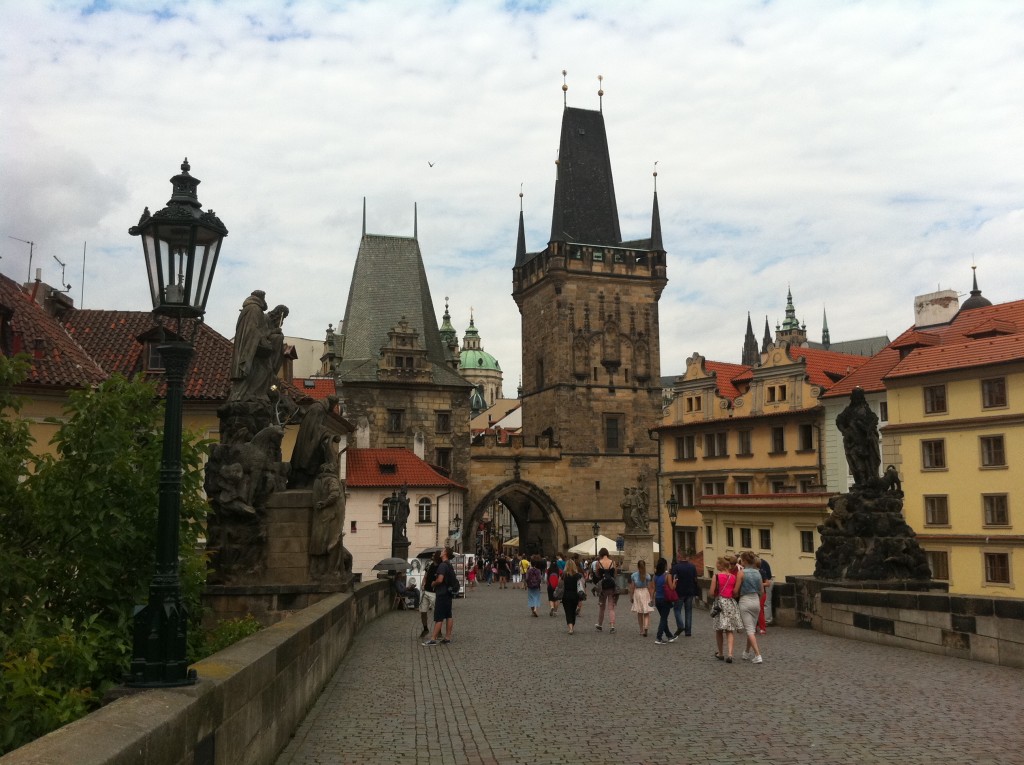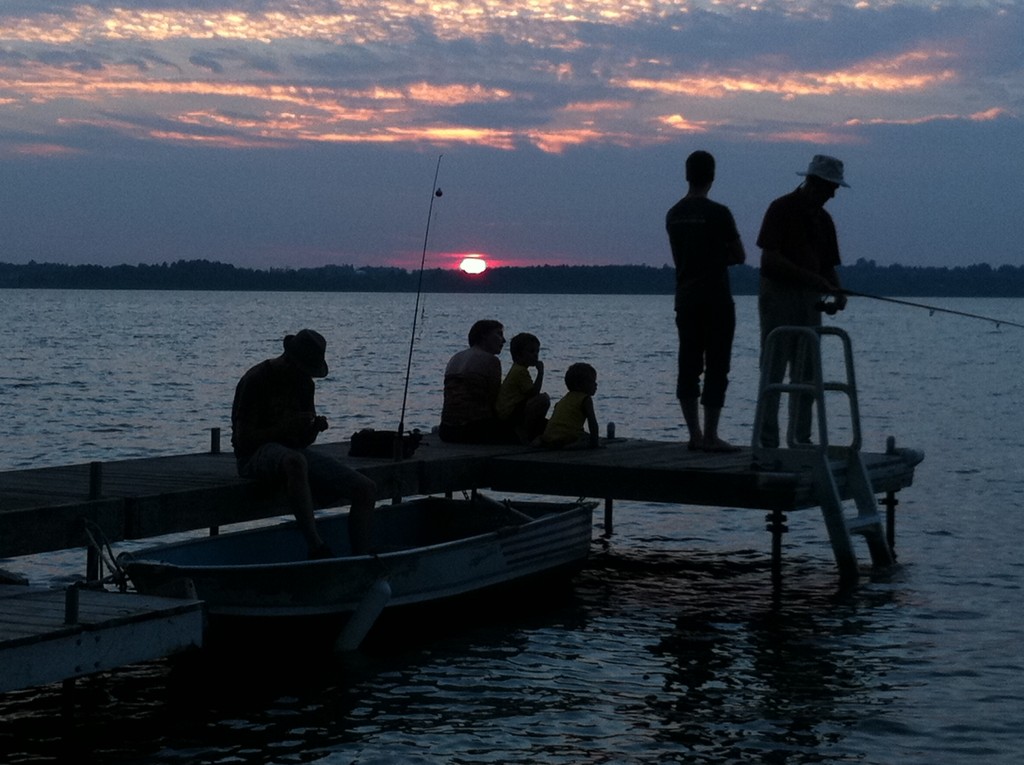In May of this year I began work on what will be my ninth philosophy book, and seventeenth book overall. I thought you might like to see Chapter One. As you read it, remember that this is an early draft. But do let me know what you think of it. –Bren.
First meditation: Why should I return to the city?
I’ve cycled seven kilometers through the forested hills which begin near my front door and continue northwards for what looks like forever. The story in my tourist’s map says my destination is a lookout platform above Pink Lake, in Gatineau Hills national park: a lake with no oxygen in its lowest depths, and therefore home to an unique and fragile ecosystem. The story in my mind, however, says that my destination is the climax of a hero’s quest: a tower in the midst of a deep dark wood, near a magical lake, full of stars on the surface, and monsters far below. The treasure I hope to find at the end of this quest is the answer to a question: why, if at all, should I go back to the city?
Let me attempt to convey why I think this question is important. Behind me on this bicycle path is the route back to the city. Were I to return there, I could take up again my share of the gains of civilization. There’s clean water in my kitchen and washroom. Electricity in the walls to power my computer and other machines. Libraries and museums to enrich my mind. Food that is safe and healthy to eat. Telephones and computer networks to keep me in touch with the rest of the human world. Hospitals to care for me if I am ill or injured. Police to protect me from criminals, armies to protect me from other armies. Every few years there’s an invitation to vote for the people who will take charge of all these things. With these gains come debts and responsibilities. I must find a job, and pay my bills, and respect the law. Outstanding among these responsibilities is the unwritten requirement to ignore, or sometimes to participate in, something I know to be entirely absurd. For instance, when I vote, I might find that all the candidates are incompetent or corrupt: their talents lie– so to speak– in their ability to hide their true selves. The laws I’m bound to obey might prevent me from doing something that harms no one, or they might oblige me to do something that harms myself and others. It might punish people who don’t deserve punishment, or reward people who didn’t earn their reward. The books I read or the films I watch might stupefy me, instead of enlighten me. When I spend money, I might be indirectly helping to exploit or enslave the worker who made what I just bought. Or, my money might help to destroy an irreplaceable natural environment, from which the raw materials came. I might find that other people whom I depend on, be they salesmen, school teachers, religious leaders, or even my friends and lovers, regularly deceive and manipulate me, in order to protect their reputations or assert their influence. In the course of professing commitment to religion or politics, I might attack people who profess different religions or different politics, and I might call that violence my demonstration of piety, loyalty, and integrity.
I arrived at the lookout platform. I lock my bike to a fence post and search for a quiet place to breathe. Suddenly I discover I’m sitting on the threshold of three immensities: the city behind me, the uncovered water before me, the starry sky above me. Here in this liminal place, the question why should I go back to the city?, becomes the question of why, if at all, I should put up with these absurdities. Why, if at all, I should turn back and rejoin civilization?
Civilization! A word like no other, in any language. It announces every society’s highest and deepest values: it’s the name we give for the most enduring and most glorious of humanity’s creations. It speaks of that which a nation may share in common with other nations. Yet it also speaks of the conquests, colonizations, and oppressions which make that enduring glory possible. It lifts up one society by putting down another; it demands the capture and taming of wild lands and animals; it summons flag-waving believers to war. This book is a quest for the essence of civilization. As we shall soon see, the quest shall take us not only through the usual trails of economics and politics, but also to some of the muddiest fields of ecology, the deepest caves of human nature, and the highest hills of the meaning of life. I find such metaphysics questions inherently interesting, and for me that’s reason enough to ask them. But the absurdities may lead me to some dark conclusions. What if civilization is only “a tale told by an idiot, full of sound and fury, signifying nothing”? What if civilization is nothing but a machine for crushing people? What if it’s a machine that must inevitably break down? To consider these things is to consider the metaphysical perils to human life. At their extremes, it’s not only the destruction of individual people’s lives at stake, but also of the destruction of art, literature, architecture, knowledge, the whole inheritance of history, everything we point to as proof of our greatness, and the very possibility of a legacy for the future: the surrogate immortality of apotheosis. So this book is about the despair that may dwell in civilization’s heart: despair for its essence, and for its future. It’s also about what, if anything, can be done about it. The question, Why should I go back to the city?, is also the question, Why, if at all, should I have hope for the future of humanity?
Postscript, September 2016: This piece was revised and included as chapter one of “Reclaiming Civilization”, soon to be published by Moon Books. Click Here for more info.




3 Responses to Ecology and Civilization: A sample of the work in progress.